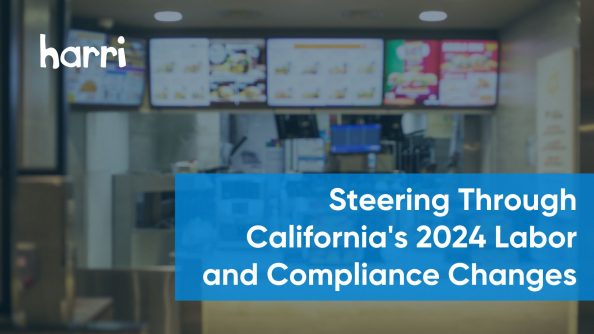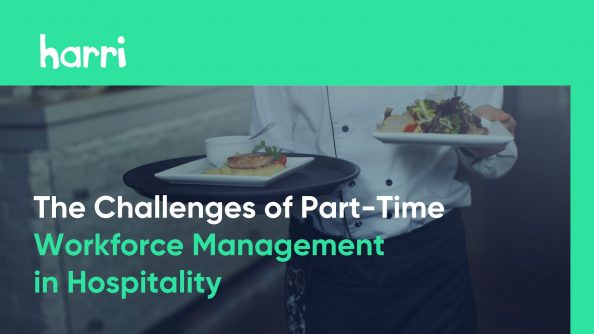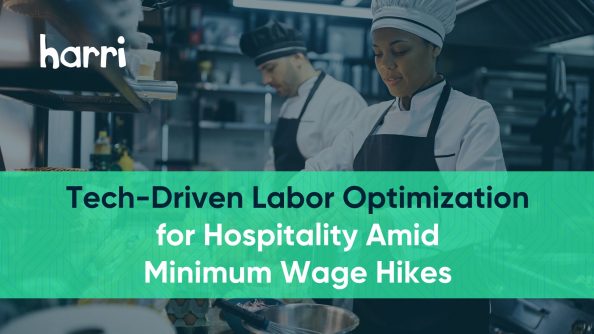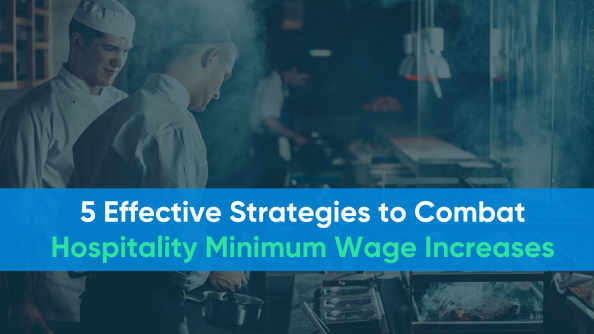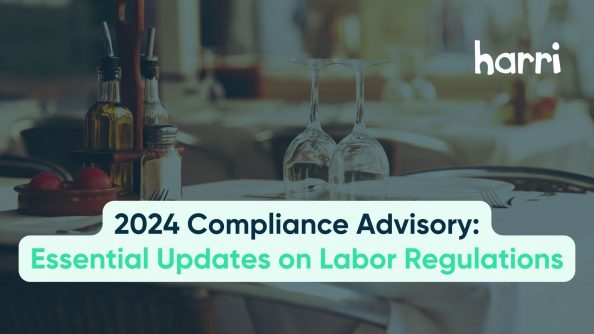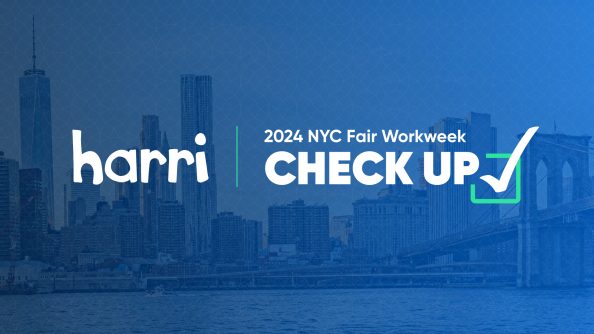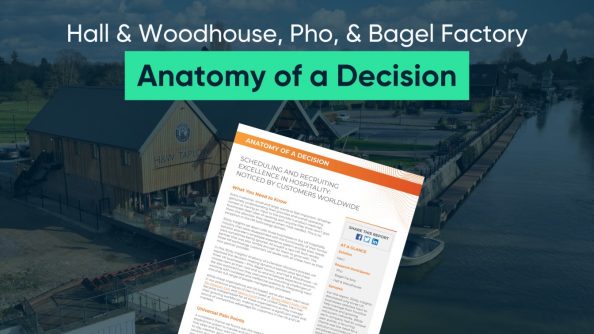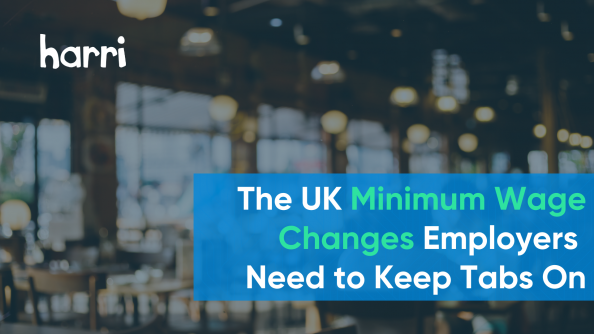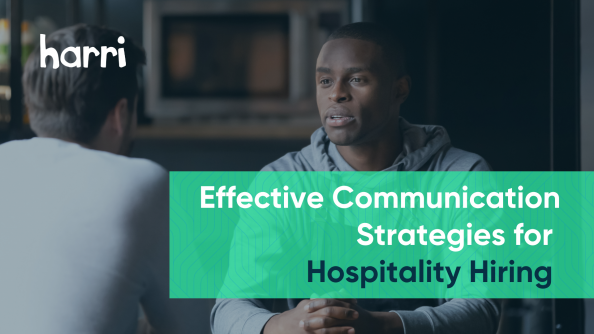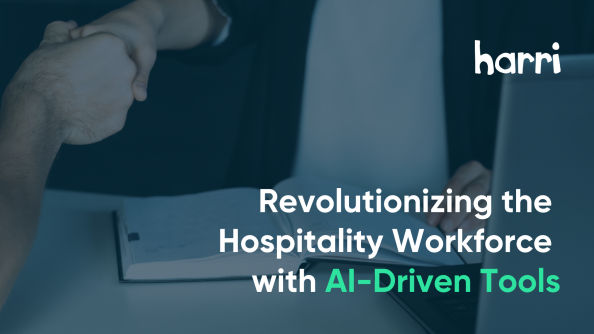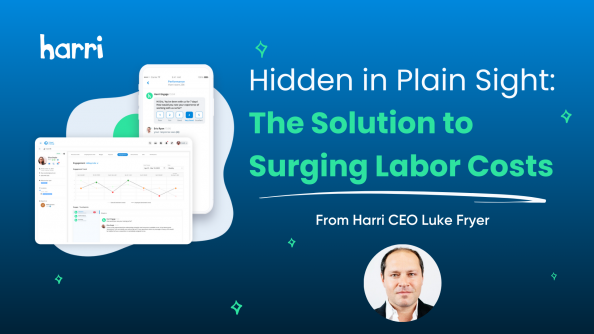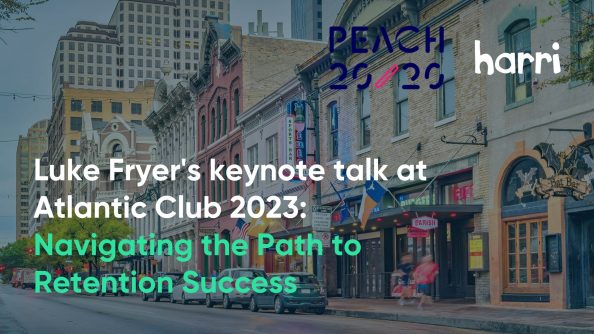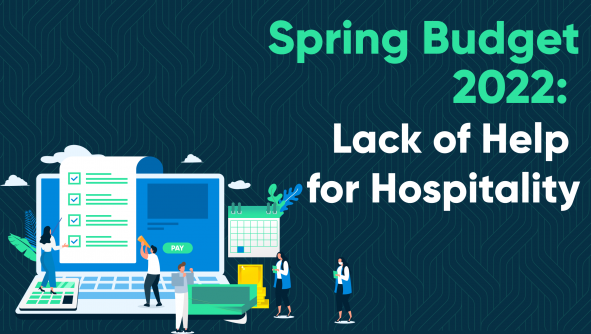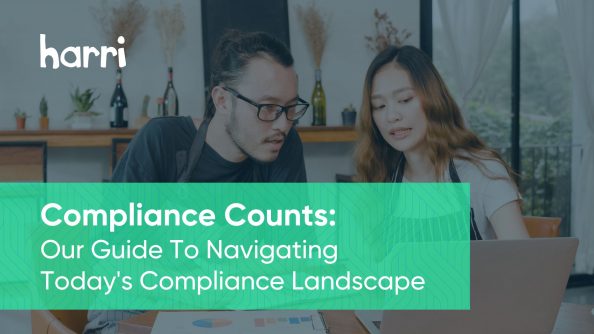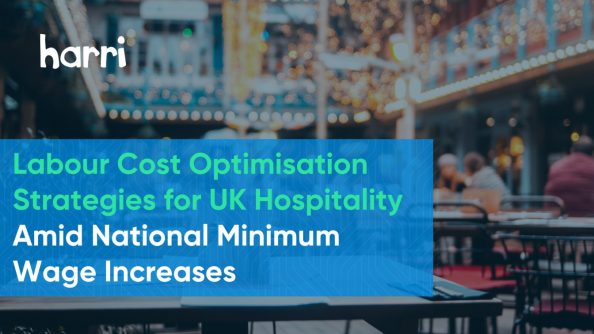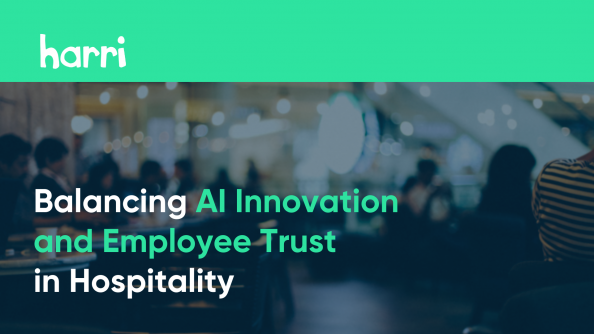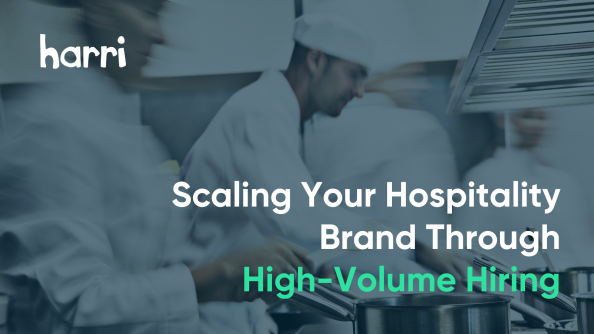Cultivating a Culture of Continuous Learning in Hospitality: Tools and Techniques
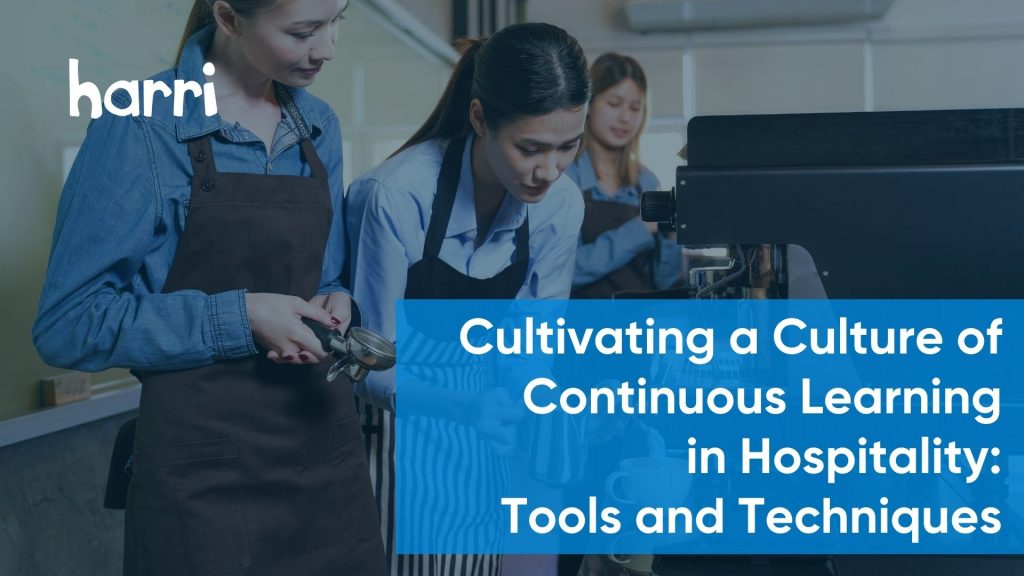
- By Harri Insider Team | February 13, 2024
In any business, once you’ve acquired a team of solid employees, you want to do everything you can to keep them. Ensuring they feel heard, respected, and have opportunities for growth should always remain the goal of all department heads.
In the fast-paced, competitive hospitality industry, reducing turnover and increasing productivity go hand-in-hand with creating a continuous learning culture. Let’s talk in-depth about how a business can successfully make that happen, including utilizing various tools and techniques for effective training programs and how Harri can help facilitate ongoing professional development in partnership with you and your management teams.

The Importance of Continuous Learning in Hospitality
It stands to reason that a long-term employee who is happy at their job is more likely to show up each day. Keeping a team member happy is only partially about money.
Job satisfaction also increases if they feel valued, committed, and motivated. In this ever-evolving work environment, we must always spend time determining how to develop a program that ensures your team feels valued and has the motivation they need to grow with your company. An employee who stays on the job long-term not only knows how to do their own role, but if they are offered promotions and training, they can grow leadership skills to help others do the same.
Continuous learning is not only crucial to inspire your team to come to work each day, doing their best, but because your service quality depends on it. When you’re creating your continuous learning program, you may also want to consider cross-training key employees. This helps fill gaps when others are out and helps convey value to the employee who is receiving the training.
Benefits of a Continuous Learning Culture
There are many advantages to implementing a continuous learning culture in your workplace. Just a few of the benefits are improved service standards, employee engagement, and adaptability.
Employees who are personally invested will be better at problem-solving and referring their colleagues to your business when they are seeking a new position, increasing your brand reputation while helping you grow your talent pipeline. LinkedIn’s October 2023 Global Talent Trends report states that companies that help their employees build skills have a 15 percent higher internal mobility rate, which can make a significant difference to your business.
Upskilling is another benefit of hospitality training programs. Employee development is a selling point in your job listings and can help boost interest among your applicants, bringing you candidates who want to grow with your business. All of this helps your business to present its best face forward to guests and to increase productivity and sales.
Tools and Techniques for Effective Training in Hospitality
Effective training programs in the hospitality industry can take many forms. Some companies dedicate a few hours per month or payment cycle for employee training and development. Other options are monthly programs where entire teams participate at the same time, though this can be challenging in the busy and “always on” atmosphere of the hospitality industry.
Your company may be best suited for a coach/mentor type of program, which has its pros and cons, or you can design fun activities that allow employees to engage with each other while learning. There are also online programs you can enroll them in; offering flexibility in continuous learning programs is what inevitably will make it the most successful, and sometimes that means remote learning or something else offsite.
It’s not a one-size-fits-all program, so if something doesn’t work for one employee, you may need to find options. This will make it accessible to everyone and promote equal access but first, you must develop an action plan that takes all of this into consideration.
Developing an Action Plan
Once you’ve decided to implement a continuous learning plan, it’s time to consider your goals. What are your priorities? What types of hospitality training programs do you want to begin? You don’t need to have only one, you can have multiple. What types of platforms will they use? In what ways will they engage your employees, and can you easily create measurable learning objectives? How will you collect feedback?
On-the-Job Training and Mentorship Programs
On-the-job training and mentorship programs are practical and provide hands-on learning experiences. They meet your employee where they are, and their strengths and weaknesses are easily considered. These not only educate the trainee but show your thanks and admiration for the person doing the training, increasing their value. Knowing you are appreciated for what you do, especially enough to train someone else, is a huge motivator.
These training and mentorship programs can be developed with standards and outlined in such a way that they can be reused for other teams and departments by sharing outcomes, both positive and negative. Learning from each other in all ways helps your business grow. Documenting every completed training is critical in measuring success and knowing when to make changes.
Another approach to this is role rotation or cross-functional programs. This allows for your employees to learn what others do, gaining more skills, similar to cross-training or role-shadowing.

Harri Engage: Enhancing Manager-Employee Communication
Harri’s software platform can be a crucial part of any hospitality training programs you begin. Harri’s online tools provide a space for managers to communicate with their teams. Accessibility is easy, and managers can check in with their employees, give feedback, and ensure there is an understanding of their expectations. Employees also have the opportunity to message their managers with questions and concerns through the online messaging tools, and the tracking ability for course completion is available for both sides.
Giving your team another way to be heard shows your sincere interest in helping them succeed on both a personal and professional level. Removing any barriers that would prevent them from providing feedback is another way to show this. You may not know that a training program isn’t engaging enough or leaves out key parts of a certain role without employees being able to tell you, so making it simple will increase the chance that they communicate these concerns with you.
Creating a Learning Environment in Hospitality
It’s incredibly important for individuals in the hospitality industry to keep up to date on relevant skills to stay at the top of their field as a hospitality professional. Managers can also lead by example and model the things taught in the training modules.
Learning is an ongoing process, and when everyone is involved, that’s when it transforms from a training program to a business of continuous learning culture. Determining your goals, seeking the tools to reach them, and then constantly evaluating results will allow you to create and fine-tune your program as your business grows and evolves. This will encourage ongoing growth and excellence in your teams.
Strategies for Implementing Continuous Learning Programs
Your business strategy will be based on many things, such as the size of your team, your specific type of business environment, and what you may have tried in the past. Being open to trying new things and listening to your team will help you implement the continuous learning programs that suit your business specifically.
Instituting a culture of continuous learning should also include recognition and reward. Part of your strategy for implementing an effective hospitality training program is to acknowledge your consistent learners, those who continue a program to go further than required, along with those who complete programs. These types of announcements can take place within Harri’s dedicated platform, where everyone can see them.
Measuring the Impact of Continuous Learning Initiatives
Even the best continuous learning programs won’t be helpful if you can’t measure their impact. Before you begin any new program, it’s important to gather your current data. When you develop your strategy, note the existing numbers in areas you’d like to improve.
This could be things like your employer turnover rate or quantitative levels of satisfaction collected via survey. You can then compare your data before and after to see where you are succeeding, and where you are falling short. You can then use this information to change your learning initiatives or create new ones. It’s important to note that it may take a few cycles to see change, but you may also see more immediate results if you listen to the feedback of your employees.
Embracing Learning and Training for Future Success in Hospitality
Helping your team embrace learning and training can directly impact business success. Staying at the forefront of the hospitality industry provides a strong foundation on which to build, by having employees trained and confident in their skills. Their confidence and ability to do their job gives your hospitality business a leg up on the competition and provides the ultimate guest experience, which is what everyone strives for.
A culture of continuous learning is but one part of the big picture, but it is too important to be overlooked. Contact Harri today for a demo and let us show you how we can simplify the process for you and help support your continuous learning initiatives.

